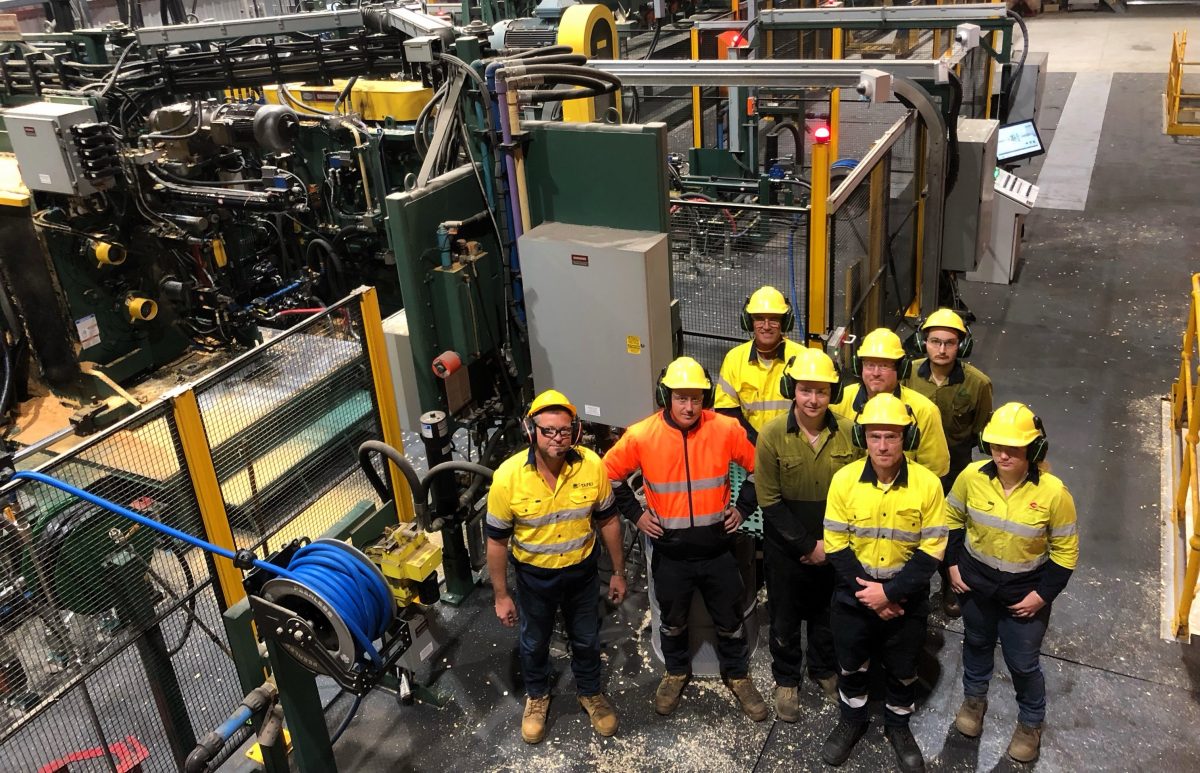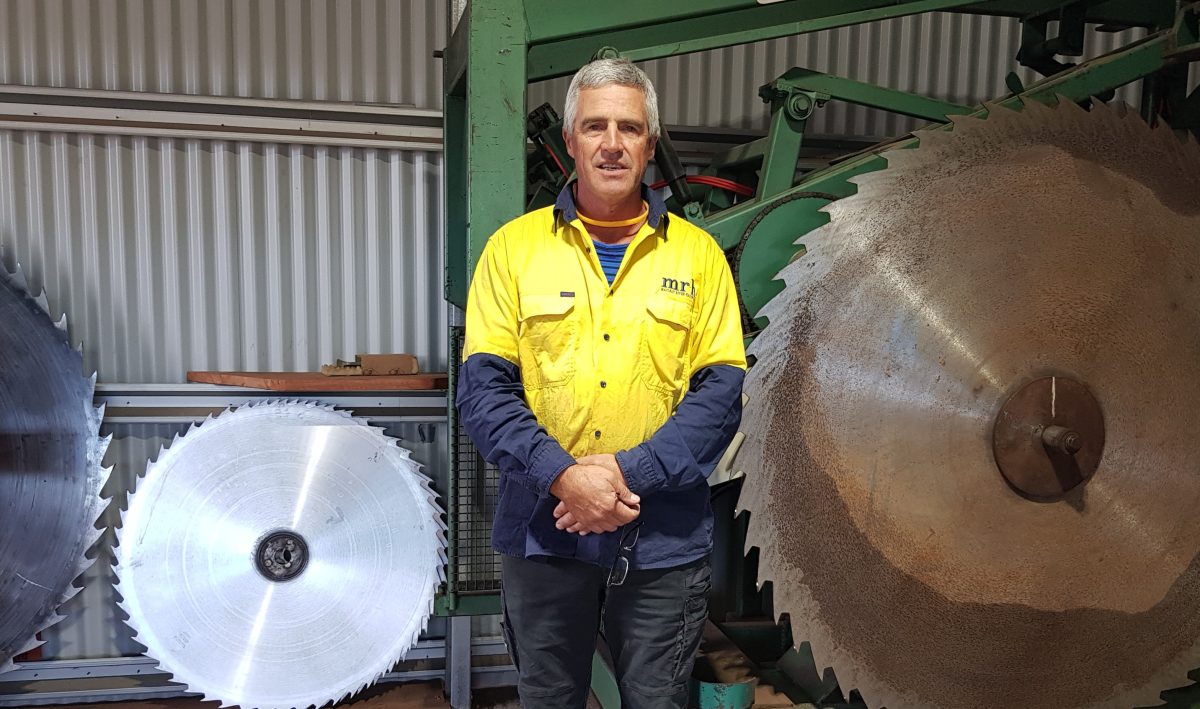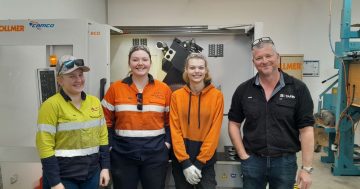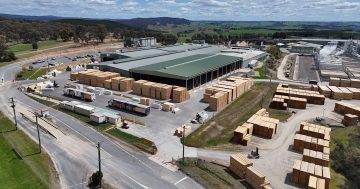
A whirlwind visit of the largest softwood sawmilling business in Australia – Associated Kiln Driers (AKD) – in Tumut offered an eye-opening experience for saw technology students from throughout the state, including a 63-year-old ex-builder from South West Rocks who decided he wanted to change career. Photos: TAFE NSW Tumut.
At an age when most people are considering retirement, a 63-year-old ex-builder decided he’d change things up career-wise to become a saw doctor.
Craig Schweikert of South West Rocks, on the NSW North Coast, was among a group of trainees to visit Tumut last month as part of a whirlwind tour of one of the town’s powerhouse sawmills – Associated Kiln Driers (AKD) – the largest softwood sawmilling business in Australia.
The group of Certificate III in Saw Technology students, from sawmills across Australia, were part of an annual TAFE NSW study tour that gave apprentices a firsthand glimpse into how a high-volume, state-of-the-art mill operated.
It also gave AKD an opportunity to identify future talent.
Mr Schweikert’s partner recently became a partner at Macleay River Hardwood, and he turned to TAFE NSW Tumut to give him the hands-on skills, knowledge and experience to work as a saw technician, also known as a saw doctor.
Tumut and Tumbarumba are home to a global forestry industry, accounting for nearly 18 per cent of the region’s workforce – and TAFE NSW Tumut is one of only two forestry training providers in Australia, giving apprentice saw doctors from across the nation the skills and experience to forge long careers in the industry.

Saw technician trainee Craig Schweikert, 63, was part of a group of TAFE NSW Tumut students to tour AKD in Tumut recently.
Saw technicians are an irreplaceable part of the timber industry, repairing, setting and sharpening saw blades for timber production, often working within fractions of millimetres.
“Retiring wasn’t an option for me and I’m still physically fit, so I decided to become a trainee at 63,” Mr Schweikert said.
He described the visit to AKD as “mind-blowing” given he’d never had any exposure to softwoods before.
With operations extending across Victoria, NSW and Queensland, AKD saw shop supervisor Bill Stuckey said the Tumut operation was the hub of the softwood industry in NSW.
“Many of these apprentices haven’t seen anything like this before; it was a real eye-opener,” Mr Stuckey said.
“They got a real insight into how automation allows a log to be segregated, separated and broken down as sawn timber without a hand touching it.
“There’s so much demand for saw technicians right now and for a young person that likes detail and working within tight tolerances, it’s a great career to get into.”
Mr Stuckey said the local timber industry was still recovering from the disastrous 2019-2020 bushfires, which devastated more than a third of the region’s commercial forestry plantation area.
Softwood plantation forestry in southern NSW injects some $3 billion in economic value annually and provides more than 11,000 jobs.
In May, the NSW Government announced a $13 million forestry funding package to provide much-needed protection of critical timber supplies in the region in the lead-up to the next bushfire season.
The package will not only build on rapid-response capability through early detection with the use of towers, remote sensing and camera technology, but will improve tactical and operational response with additional fire tankers, equipment and infrastructure, including construction of new strategic fire trails and asset-protection zones.









